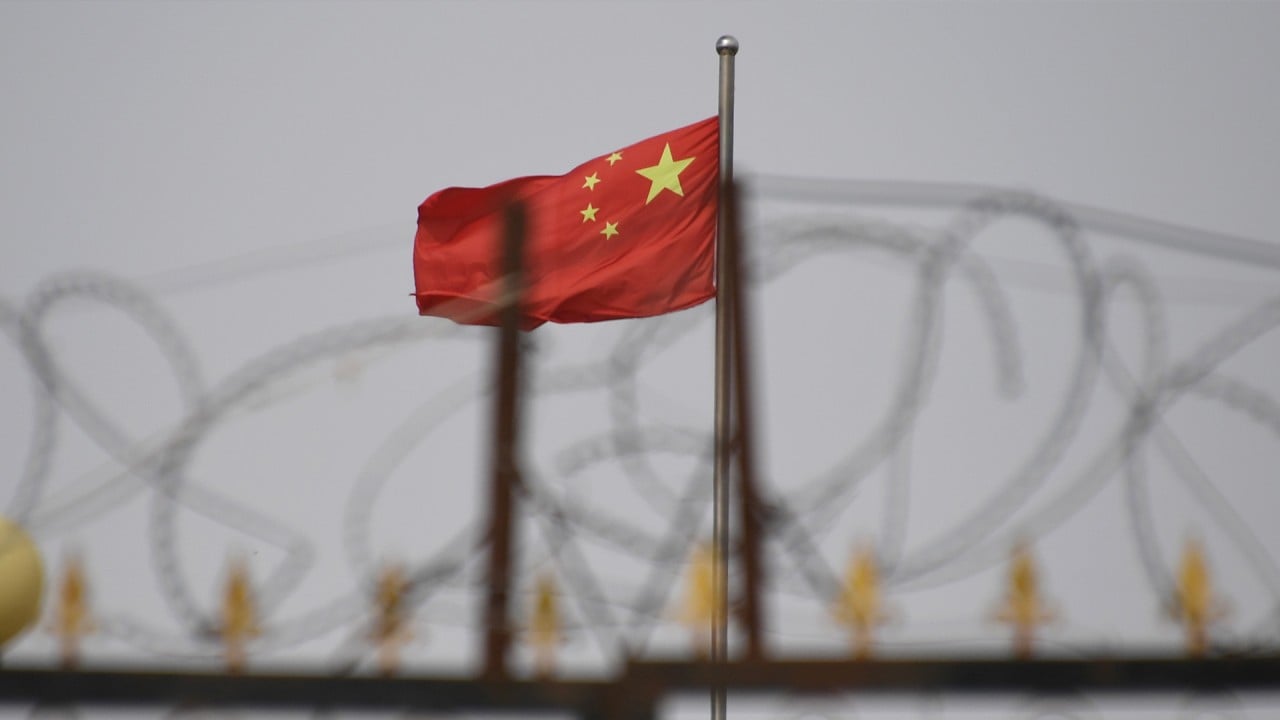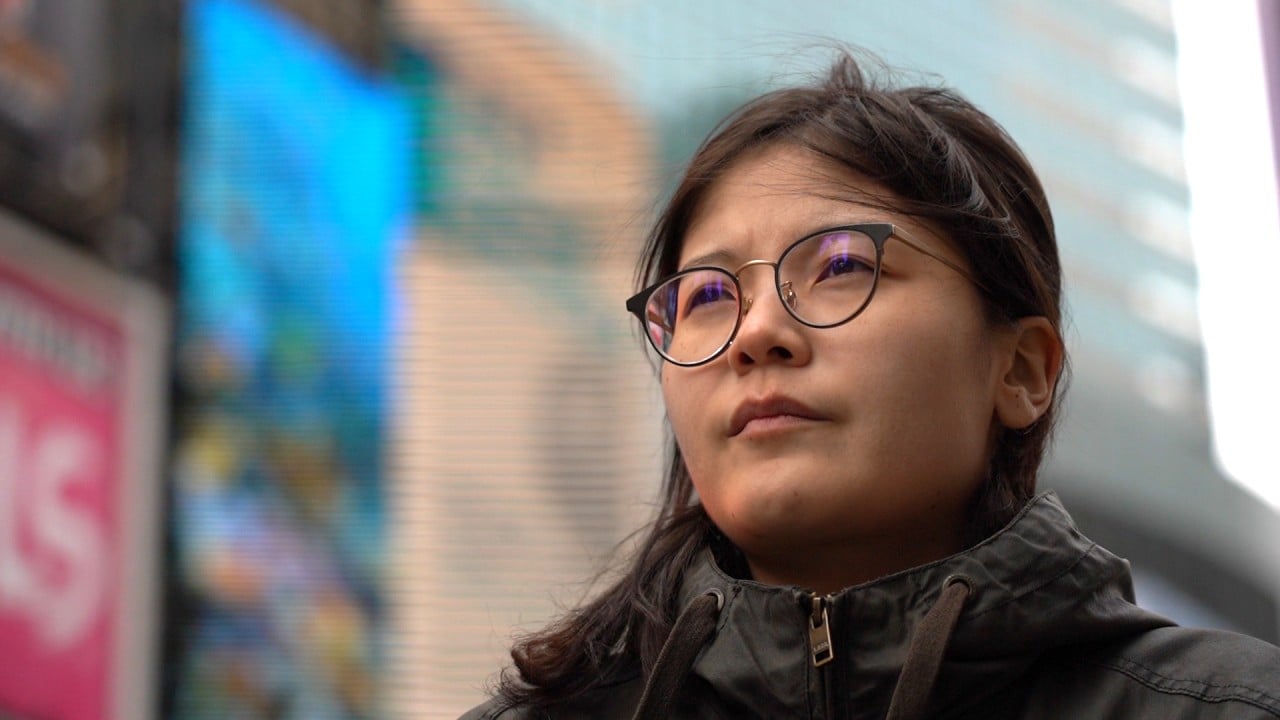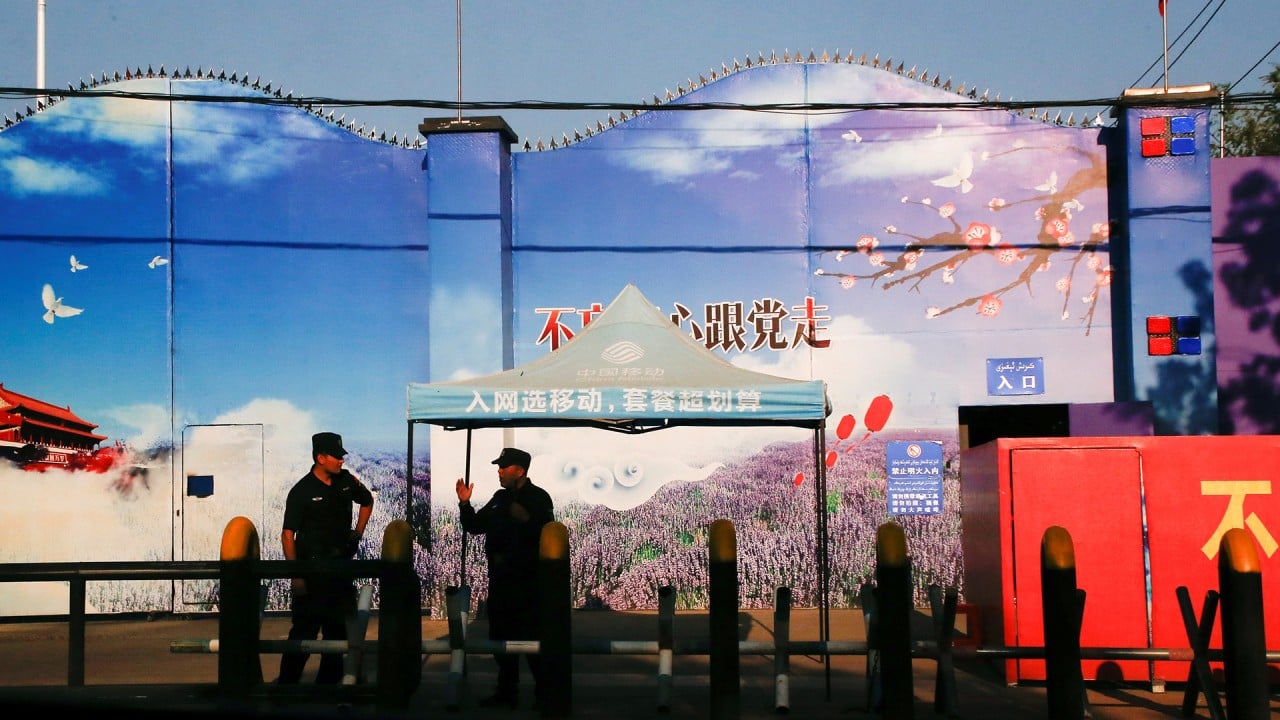
China risks international extradition row over case of Uygur man detained in Morocco
- Yidiresi Aishan was detained in Casablanca earlier this month on an Interpol red notice issued by China
- A US Congressman has said he will ask Morocco to halt proceedings and campaigners have urged France to intervene in the case
The detention of a Uygur man in Morocco on an Interpol red notice issued by Beijing threatens to spark another row over international extradition rules.
Yidiresi Aishan, 33, who has been based in Turkey since 2012, was detained on arrival in Casablanca on July 19 and is being held at the Tiflet Detention Centre, according to Ilyas Dogan, a Turkish human rights lawyer retained by Aishan’s family.
US congressman Chris Smith, the co-chairman of the Congressional-Executive Commission on China, indicated on Tuesday that he would ask the Moroccan authorities to withhold extradition proceedings against Aishan.
Aishan, who took up advocacy work for Uygurs, also faced the threat of being sent back to China from Turkey, where he was detained several times between 2016 and 2018, according to his wife, who gave her name as Zeynure.
Details of the charges against him have not been made public.

03:36
Beijing hits back at Western sanctions against China’s alleged treatment of Uygur Muslims
Chinese foreign ministry spokesperson Zhao Lijian said on Thursday he was not familiar with the case but that the international community should work together to fight all forms of terrorism.
“Terrorism is the common enemy of mankind,” Zhao said. “The international community should work together in fighting against all forms of terrorism.”
Zeynure said that no one had been able to visit him because the prison authorities in Casablanca did not allow it, and she has not heard from her husband since one brief phone conversation last Friday in which he told her about his detention.
Zeynure said she did not believe her husband had committed any crimes in China, saying that he had left the country in 2012 soon after his graduation from the China University of Petroleum in Shandong province.
Turkish leader tells Xi Uygurs must be treated as ‘equal citizens’ of China
She and others in the Uygur community have started an online petition urging the French embassy in Morocco to intervene, which had attracted almost 1,800 signatures by Thursday.
Beijing ratified an extradition treaty with Morocco in January this year, almost five years after it was first signed in 2016. Activists and human rights organisations have expressed concern that China is using extradition requests to pursue dissidents based overseas.
Interpol did not immediately respond to a request for comment.

12:39
What happened to our parents? Uygur sisters seek answers
Yahia Zoubir, from the KEDGE Business School in France, said it would not be surprising if Morocco handed Aishan over to China because of the extradition treaty and the fact the red notice came from Interpol.
“Morocco positions itself as a country that contributes to the global fight against terrorism. Within Morocco, there will be little reaction to the extradition if or when it occurs,” said Zoubir, who has written about China’s relations with the Maghreb.
“They believe that Western countries have mistreated Muslims, bombed and destroyed Muslim countries, like Iraq, Libya, and Syria and thus find it odd that suddenly they make the Uygurs a big issue,” said Zoubir.
Activists say sensationalist reports on Xinjiang do more harm than good
Ayjaz Ahmad Wani, a research fellow at the Observer Research Foundation in New Delhi, said that since 2017 more than 600 Uygurs have been detained or deported to China from 15 different countries – mainly Muslim majority ones – through platforms such as Interpol and the Shanghai Cooperation Organisation.
He said that Muslim countries such as Morocco were likely to remain silent on the issue given their fraught relationship with the West and the growing influence of China.
“Subsequently, the US and European Union will try to build up more pressure, but it is doomed to fail as authoritative Muslim countries will favour China on Uygur issues,” said Wani.
Interpol currently has about 66,000 valid red notices, which is a request to law enforcement worldwide to locate and provisionally arrest the wanted person. Only 7,688 notices were made public, including 35 from China.

02:27
US declares China has committed genocide in its treatment of Uygurs in Xinjiang
Ben Saul, a professor of international law at the University of Sydney, said some countries require that evidence must be presented in courts to justify the extradition while others only examine whether the charges are properly laid out or there is dual criminality, which means the offence is a crime in both countries.
Moroccan law states that it will grant extradition where there is dual criminality, but not when the alleged crimes are of a political nature.
Saul said that Interpol’s constitution should prevent the misuse of its notices to target political opponents, but there has been a lot of criticism in recent years for the way cases are vetted.
“There have been some improvements, but often Interpol sees itself as a vehicle for transmitting information provided by states, rather than more intensively scrutinising that information in an independent way,” he said.
“The problem is aggravated by ‘terrorism’ offences in many countries being defined very broadly to criminalise what are really political activities, and there is a risk that Interpol nonetheless views these as genuine crimes rather than as an abuse of criminal laws to target political dissidents.”


